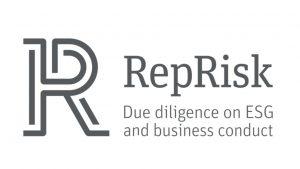Overview
ESG data is the basic unit of entity information disclosure and the basic element of ESG investment. The scope and quality of ESG data are related to all stakeholders. Regulatory agencies have regarded the collection, aggregation, analysis, and disclosure of ESG data as important working issues.
ESG data providers include traditional financial institutions, as well as exchanges that provide ESG data integration.
ESG Data Development
The importance of ESG data has been recognized by participants, but there are many problems in the current development of ESG data, such as inadequate data collection, analysis, and disclosure methods, and the impact of greenwashing on the credibility of ESG data.
The driving force for the development of ESG data is artificial intelligence and big data technology. Some data suppliers have already started applying these technologies to their business processes.
ESG Data Regulations
ESG data has been incorporated into policy-making by various jurisdictions, with the ESG ratings and data product codes of conduct issued by the International Capital Market Association being the primary reference standards for these regulatory agencies in formulating policies.
In existing ESG data regulations, most still adopt the principle of voluntary principles in order to reduce the cost burden for data providers. As the ESG industry develops, these voluntary principles may transition towards mandatory principles in the future.

OECD Releases Global ESG Metrics Report
Organization for Economic Co-operation and Development (OECD) releases global ESG metrics report

CFA Institute Releases Report on Carbon Emission Data
CFA Institute Research & Policy Center releases a report on carbon emission data

Hong Kong SFC Releases Guidance to Asset Managers Regarding Due Diligence for ESG Products
Hong Kong Securities and Futures Commission releases guidance to asset managers regarding due diligence for ESG products

TNFD Releases Roadmap for Nature-related Data
TNFD releases a roadmap for nature-related data, aiming to propose long-term measures to acquire and use nature-related data

HK SFC Releases Code of Conduct for ESG Ratings and Data Products Providers
Hong Kong Securities and Futures Commission officially releases Code of Conduct for ESG Ratings and Data Products Providers

CDP Releases Report on ESG Rating and Data Product Regulations
Report on ESG Rating and Data Product Regulations The international research institution CDP (Carbon Disclosure Project) releases a report on ESG rating and data product

Oracle Releases Enterprise Sustainability Solution Oracle Fusion Cloud Sustainability
Oracle releases Oracle Fusion Cloud Sustainability, aimed at providing efficient and sustainable solutions for enterprises

UNEP FI Releases Guide for Data in Climate Stress Testing
The United Nations Environment Programme Finance Initiative releases guide for data in climate stress testing

Fitch Subsidiary Launches Sovereign ESG Analysis Services
Fitch subsidiary BMI launches Sovereign ESG Analysis Services ESG Country, aimed at analyzing ESG risks and opportunities

RepRisk Releases the World’s first ESG Thematic Due Diligence Scores
RepRisk, an international ESG product provider, releases the world’s first ESG thematic Due Diligence Scores
